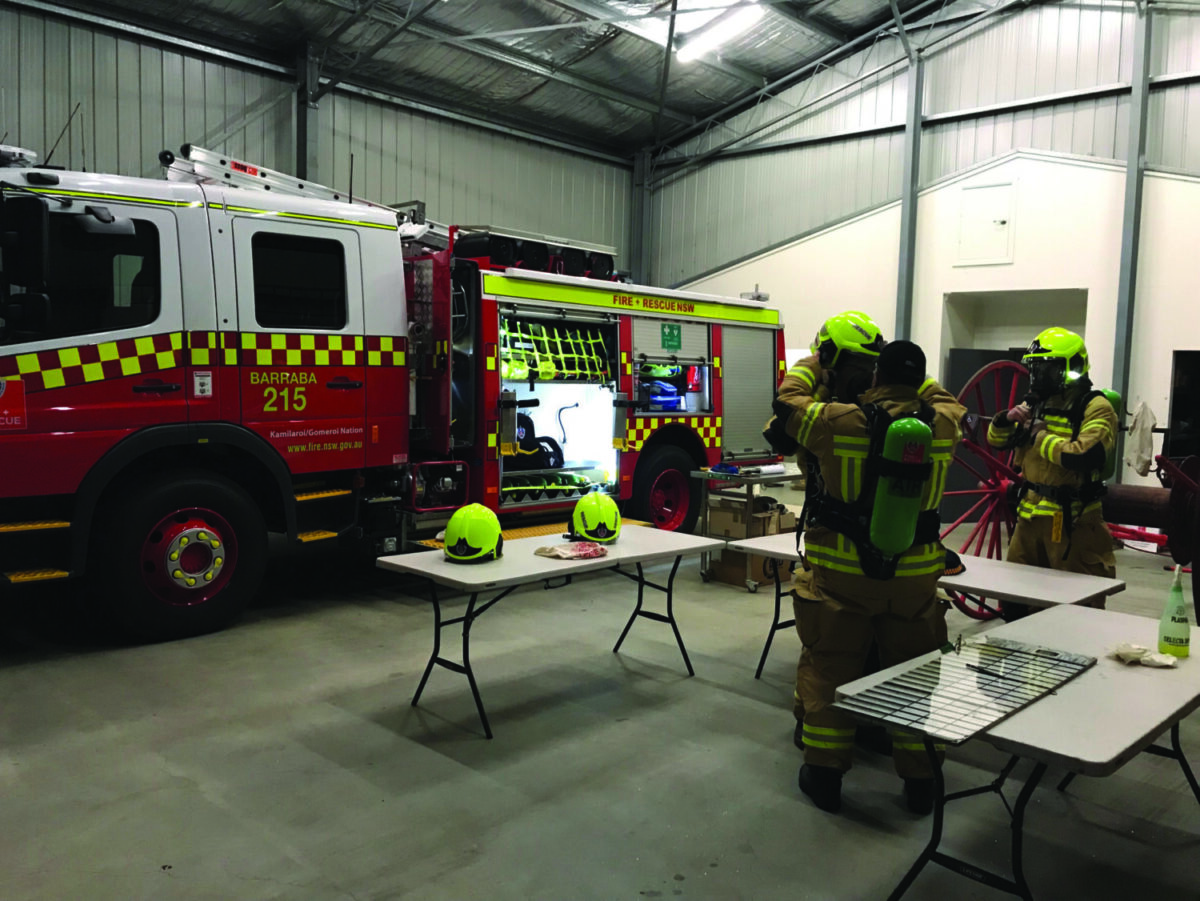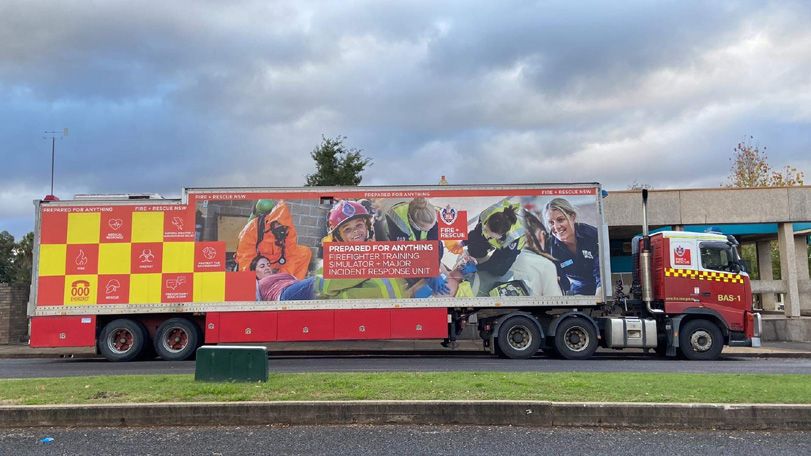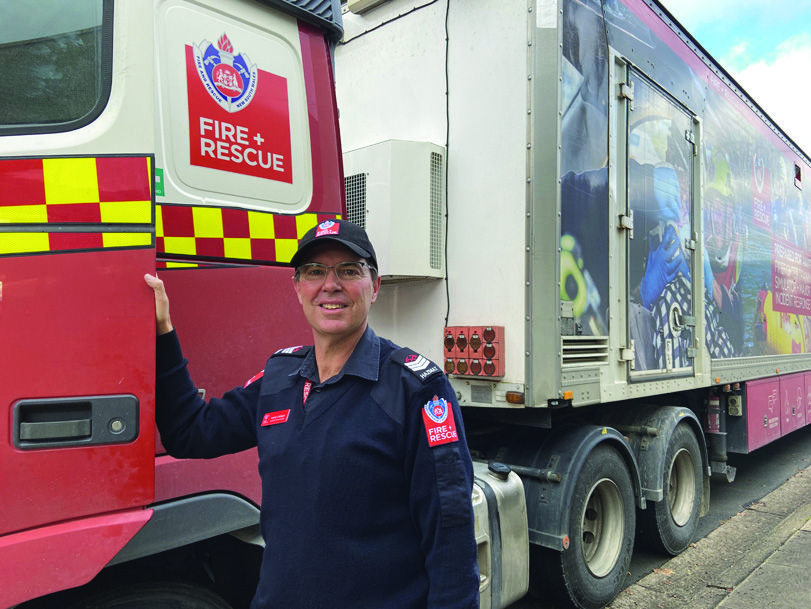
Barraba’s on-call firefighters received some valuable training last week when David O’Brien from Fire and Rescue NSW visited town with a specially kitted out semi-trailer. David is a highly skilled Breathing Apparatus Hazmat Instructor, Fire Research Officer, Senior Fire Fighter, and front line Emergency Service Professional. As a former World, USA and Australian Swimming champion, David says he is highly motivated to increase his own Emergency Response, Fire Safety and Business Management skills. In turn David skills up on-call firefighters.
Fire and Rescue NSW regularly conducts refresher training in all areas of regional NSW to ensure frontline staff have the most up-to-date gear, equipment, and practices to better serve rural communities. The Breathing Apparatus (BA) Hazardous Materials (Hazmat) Training Team is based at the Emergency Services Academy in Sydney but travels right across a network of retained firefighters.
“During these sessions, our local teams are given access to two modern semi-trailer-based fire simulation trainers, to ensure yearly qualifications and standards are maintained to the highest response level,” says David.
“All country towns have valued FRNSW members. These are regular people that have regular day jobs in and around the towns where they reside. On-call firefighters not only provide a valuable safety resource but develop new skills and competencies which add further value to their local communities.”
The training itself is conducted using onboard props in the specialist semi-trailer that provides a very realistic smoke-filled environment for firefighters to navigate and perform rescue drills. The specialist vehicle provides 24 BA training sets, gear and equipment for Hazmat responses and Air Cylinder Refill Compressors, to ensure all the fire stations visited maintain a smoke and rescue response capability they can confidently apply in the real world when required.
“The FRNSW members at Barraba Station conducted a full and comprehensive BA rundown on operations and maintenance for the FRNSW equipment, essential to providing a safe breathing atmosphere when in a fire,” says David. “The second stage of the drill involved the semi-trailer with full stairway access, to be filled with a nontoxic smoke that mimics a real-world fire scenario – but in a safe and controlled manner. The drill lasts for up to three hours with all local members now recertified for another 12 months of frontline response to the Barraba township and beyond.”
David says you don’t need to be superman or superwoman to be an on-call firefighter. “We want people who are reliable and keen to help others, especially residents who are available to respond to emergencies during the day. On-call firefighters balance work and family commitments to respond to fires and other emergencies on an ‘on call’, part-time basis. Being an on-call firefighter does not mean that you must be available every minute of every day.” On-call firefighters are paid a weekly retainer and then an hourly rate for work.
By Jane Harris




